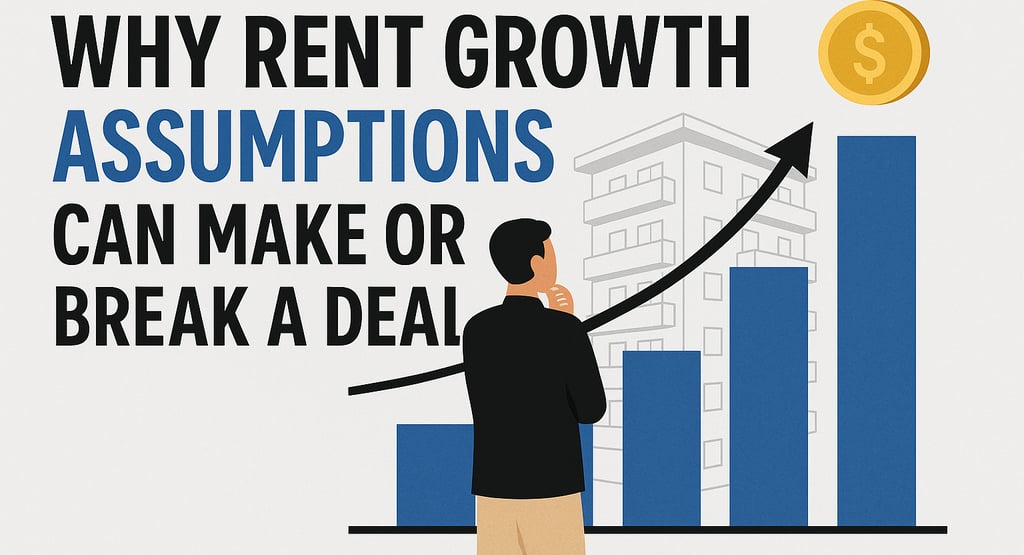📈 Why Rent Growth Assumptions Can Make or Break a Deal
🧨 Even a 1% difference in rent growth can dramatically change investor returns. Here’s how to spot inflated projections before it’s too late and how to avoid unrealistic rent growth assumptions.
EVALUATING DEALS & SPONSORS LIKE A PRO
Published by E&S Properties
7/11/20251 min read


📊 What Is Rent Growth—and Why Does It Matter?
Rent growth is the percentage by which rents are expected to increase annually over the hold period of a deal. Since real estate syndication returns are often built on future cash flows and sale values, the sponsor’s rent growth assumption has a compounding impact on:
Net Operating Income (NOI)
Cash flow distributions
Exit valuation
Total return to investors
🔍 How It Affects You as an Investor
Let’s say the deal assumes a 3% annual rent increase. Over five years, $1,000 in rent grows to about $1,160. If they assume 5% growth, that rent would grow to about $1,276 instead.
While that may seem like a small jump, it translates into:
Higher projected cash flow
Increased terminal value
More optimistic IRR
The danger? If real market growth falls short, so do your returns.
🚩 What to Watch For in Rent Projections
1. Is it in line with historical averages?
Look up local market data from CBRE, Colliers, or Marcus & Millichap.
2. Is it higher than inflation or local wage growth?
Rents can’t rise faster than tenants’ ability to pay—at least not for long.
3. Is it supported by comparable properties (comps)?
Are the comps of similar quality and location?
Are the rents they achieve consistent with the sponsor’s projections?
4. Is the plan realistic given the renovation scope?
If they’re projecting big rent bumps, is there enough CapEx to justify it?
🧠 Summary
Rent growth assumptions may seem small on paper—but they have massive downstream effects. A conservative projection shows the sponsor is grounded and focused on long-term performance.
Before you invest, ask:
What rent growth is being projected?
What data supports that projection?
How sensitive are returns if growth slows.
🔎 Ready to take the next step?
📩 Sign up for our newsletter to get weekly insights on current trends.
📝 Interested in investing? Complete our investor questionnaire and we’ll be in touch with opportunities that match your goals.
